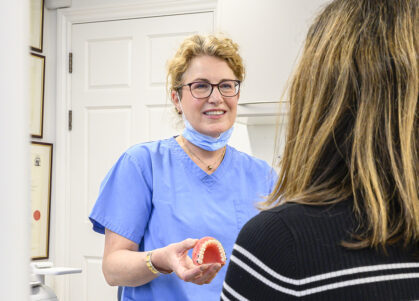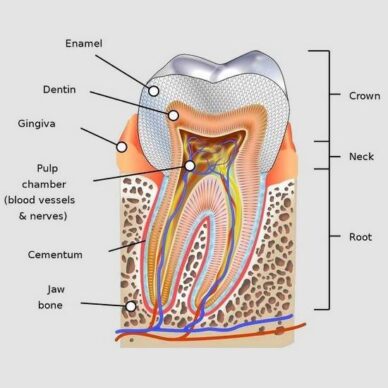Repair & Replacement
Unlike much of the body, our teeth have a quite limited ability to repair themselves. There can be a degree of remineralisation, through treatment, fluoridation of drinking water, or fluoride toothpaste but not extensive replacement.
Once tooth decay progresses and cavities form, the damaged areas need to be removed and replaced with synthetic material. An alternative can be to replace the tooth, or more than on tooth with dental implants.
Where issues lay beyond the harder areas of a tooth, intervention by specialists such as endodontists can assist to a degree.
There is ongoing research on tooth regeneration, from using stem cells, to bioactive materials but this has not yet yielded a viable solution. All the more reason to look after the important structure that nature provided.
Protecting Yourself
There are multiple causes of tooth damage, including trauma, although the prime cause is structural breakdown brought on by bacteria. They produce harmful acids when consuming sugars, or carbohydrates in our diet.
Good oral hygiene is the best defence, with regular brushing morning and night. Additional professional cleaning and dental check-ups are helpful, to prevent tooth decay, or catch this at an early stage.
Caring for your oral health also holds benefits for your wider health. There are causal links between poor oral health and heart disease, arthritis, Alzheimer’s, diabetes, or kidney and blood disorders.
Your mouth can also reflect early symptoms of other medical problems, including oral cancers. A skilled professional can detect them during an examination.
Maxillofacial Support
The relationship between dental and overall health is a natural part of a maxillofacial consultant’s work. They are qualified as doctors and dentists, bringing a broad understanding of their patients medical needs.
Maxillofacial specialists treat a range of issues, from difficult wisdom teeth, to other complex extractions. A single dental implant can be provided, or a complete set, reconstruction can take place following extensive facial damage.
Restoring function and appearance is important, along with eliminating discomfort but so is care for your current and future heath.
We hope an outline of how your teeth are built will help you to care for them. This is controlled by personal effort each day and finding established professional support when needed.

